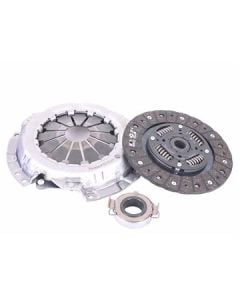Engine Acquiring Professional Tips on Choosing the Right Engine for Your Details Requirements
Choosing the appropriate engine for your details requirements entails an intricate interaction of variables that go beyond simple horse power figures. By diving into the ins and outs of power versus performance, assessing fuel rankings, and budgeting for long-term prices, one can absolutely maximize their engine selection.
Power Vs. Performance: Finding the Equilibrium

When picking an engine, it is crucial to strike an equilibrium between power and performance to fulfill your specific needs properly. Power describes the engine's ability to generate power for propulsion, identifying variables like acceleration, lugging capability, and total performance (Toyota Tazz Engine For Sale). On the various other hand, performance associates with just how well the engine utilizes gas to generate power, influencing variables such as gas economic climate and ecological friendliness
Achieving the right balance between power and effectiveness is crucial since an engine that is also powerful may take in excessive fuel, bring about greater operating expenses and unneeded strain on the setting. Alternatively, an engine that focuses on efficiency over power may lead to slow performance, specifically sought after situations like lugging heavy lots or driving uphill.
To make a notified decision, think about variables such as your normal driving problems, the intended use of the car, and your individual choices. By examining your needs and priorities, you can pick an engine that strikes the perfect equilibrium in between power and efficiency, making sure optimum performance while lessening ecological impact and operating expenses.
Recognizing Engine Size and Type

Usual engine kinds consist of inline engines, V engines, and rotary engines, each with its distinct advantages and downsides. Recognizing the interplay between engine size and kind is crucial in choosing an engine that aligns with your specific needs and priorities, whether it be power, performance, or an equilibrium of both.
Consider Your Automobile's Requirements
Considering your car's needs is a fundamental step in the engine option process to ensure ideal performance and performance. It is vital to examine elements such as the planned use the lorry, its weight, towing ability, and fuel performance needs. As an example, if you see page are searching for an engine for a sturdy vehicle that will be used for towing, you will require a powerful engine with high torque abilities. On the other hand, if you are choosing an engine for a small vehicle mostly used for city commuting, gas performance may be a much more vital factor to think about.

Evaluating Fuel Performance Rankings
Evaluating gas efficiency ratings is a vital element of choosing the best engine for your car, guaranteeing expense savings and environmental sustainability. Gas effectiveness scores, normally determined in miles per gallon (MPG) for fuel engines or kilowatt-hours per 100 miles (kWh/100 miles) for electrical engines, suggest how much a lorry can take a trip on a particular amount of fuel or electrical energy. Higher MPG or lower kWh/100 miles values indicate a lot more effective engines, translating to minimized gas expenses and lower carbon exhausts.
In addition, compare various engine options within the exact same car course to identify the most cost-effective choice. Elements such as engine dimension, weight, aerodynamics, and hybrid or electric capabilities can all influence gas effectiveness.
Budgeting for Long-Term Prices
Tactically preparing for long-lasting expenses is necessary when selecting an engine, making sure economic sustainability over the car's life-span. While the initial purchase rate of an engine is a significant aspect, it is critical to consider the long-term expenses connected with upkeep, repairs, and fuel usage. Selecting an extra fuel-efficient engine may have a higher in advance expense yet can cause substantial savings in time. Routine upkeep, such as oil changes, Read More Here filter replacements, and tune-ups, is important to keep the engine running smoothly and effectively, minimizing the threat of costly repairs down the line.
Moreover, investigating the availability and price of substitute parts for the selected engine is vital in spending plan planning. Engines with conveniently available and economical parts can significantly influence lasting maintenance expenses. In addition, thinking about the engine's resilience and anticipated life-span can assist stay clear of unforeseen replacement prices in the future. By very carefully budgeting for these long-term costs and factoring them into the decision-making procedure, individuals can pick an engine that not only fulfills their instant needs but also stays cost-effective throughout its life-span.
Verdict
To conclude, choosing the appropriate engine for your particular requirements needs balancing power and effectiveness, recognizing engine size and type, considering your automobile's needs, evaluating fuel performance ratings, and budgeting for long-term expenses. By very carefully considering these factors, you can guarantee that you select an engine that satisfies your demands and provides optimal performance for your car.
To additionally improve the option process visit this site right here of an engine that strikes the optimal balance in between power and performance, it is essential to delve into the complexities of recognizing engine size and type. Engine size refers to the overall volume of air and fuel that can be pushed through the engine cylinders. Common engine kinds include inline engines, V engines, and rotating engines, each with its special benefits and drawbacks. Understanding the interplay in between engine size and type is vital in selecting an engine that aligns with your specific requirements and top priorities, whether it be power, effectiveness, or a balance of both.
Fuel efficiency rankings, normally determined in miles per gallon (MPG) for gas engines or kilowatt-hours per 100 miles (kWh/100 miles) for electric engines, indicate just how much a lorry can travel on a specific quantity of fuel or electrical power.